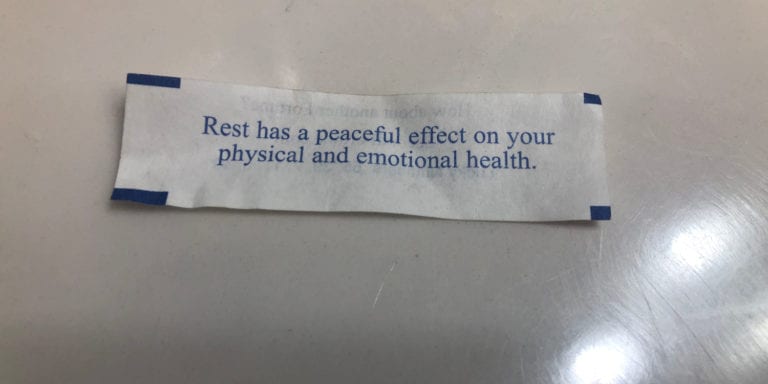
Rest.
What is that?
The weeks have become months.
Months of fear and worry. Sometimes panic.
Everyone has their own mechanisms to cope with extreme adversity.
Fight or flight?
If you’ve read any of these—now 14—Plague Tales, you know that I threw myself into work.
This was for escape but also for survival.
Barring the unforeseen, Wonder Book will survive and perhaps fully reopen better than it ever was.
(The “unforeseen”—last week there was a protester march to block Interstate 70. Police stopped the marchers before they could get to the highway. That was only blocks from the warehouse. I had no idea it happened until I read it in the News Post the next day. I was home—working.)
Part of my coping mechanism has been to work after “work”—quite often. There was little else to do. Nowhere to go. Everything was closed. I cut a lot of wood. A LOT. I estimate I have over two years stacked—mostly stacked. There’s a bit that needs splitting, and a sprawl of stove length logs that will be piled neatly—or not so neatly.
When the grass got thigh high in the field behind the warehouse, I stopped. The 7 acres is a transient home to deer. Unlike the COVID, I actually know people who have had deer tick-borne diseases.
I have also been gardening much more during this time.
Work after “work” is an escape. The time grinds by while I labor. I feel I am accomplishing something for the future…and the present. It is a kind of laboring “Rest.”
Gardeners sometimes plant for the present, but even then they are planting for the future.
“Next year this bed will be glorious. I hope these little potted perennials will grow and match the mature specimens all around them. These lily bulbs and other spring bulbs, corms and tubers will give some show this year, but if they survive, they will propagate, and what a show that will be…next year”
I am already marking off where to plant the fall bulbs—mostly daffodils. For daffodils are wonderful in that no rodents or deer bother them…and they are idiot proof. I need to plan where to add more bulbs because once their foliage disappears—in a couple weeks—I won’t know where the existing colonies are, as they will be hibernating underground. It is doubly frustrating to dig a hole and find you are exposing and perhaps damaging bulbs you planted years before. So I’m pushing white stakes in the ground here and there where I feel planting more flower bulbs will add glory to spring 2021.
Gardeners always look to the future.
Will it rain?
Freeze?
Drought?
The final paragraph of Karel Capek’s The Gardener’s Year:
We gardeners live somehow for the future; if roses are in flower, we think that next year they will flower better; and in some few years this little spruce will become a tree—if only those few years were behind me! I should like to see what these birches will be like in fifty years. The right, the best is in front of us. Each successive year will add growth and beauty. Thank God that again we shall be one year farther on!
(Yes, a copy arrived serendipitously from a book scout on Monday. A first edition. American. Putnam. 1931. With a bookseller from San Francisco on the rear pastedown.
I have another copy from long, long ago somewhere. Likely up in Pennsylvania at the old manse.)
This scout separates older and more interesting books for my special attention. I almost always pay him on the spot. I pay him more per “box” for the older books. A smaller per box rate for the common and modern books. Most lots are from house calls and are reviewed by a sorter who sets aside anything exciting. If merited, I will pay him a supplemental fee his next visit.
So the older stuff was put on carts, and I scanned the spines set sideways on the 6 shelf, 4 wheeled, 3 feet long metal carts that we use here to move smaller quantities of books…and things.
They look like this.
I leaned in, rebreathing my own breath because of the mask. I pulled the mask away from my nose so my glasses didn’t fog up. (I looked around and made sure no one was near.)
“Well, I’ll be! Capek!”
It was as if it was meant to be. I’d actually looked online and was considering ordering a copy from someone else. (Horrors!)
Perhaps my Book Muse slipped it into the lot Larry dropped off.
There were some other highflying surprises in Monday’s lot. More on that later.
Rest…
On Sunday night, I had carryout Chinese food in the dockyard behind the warehouse after work. Eggplant in garlic sauce, if you must know.
When I cracked my fortune cookie, the message of “Rest” spread before me on the tiny slip of paper.
I have never put much stock in fortunes or horoscopes or other “unexplained phenomena.” But I tucked this bit of advice in my shirt pocket for further study.
Rest…
I walk past this tin sign of Yeats’ poem every morning.
My “Rest” fortune somehow brought the words to mind.
I first became aware of it via Judy Collins recording. The girls in the Wonder Boy circle were very much into the folksy music of James Taylor, Joni Mitchell, Judy Collins … etc.
Later, when I became very close with one of them, we would play the song over and over in our dorm rooms. Most likely on vinyl, but perhaps on 8 Track tape.
The Lake Isle of Innisfree
By William Butler Yeats
I will arise and go now, and go to Innisfree,
And a small cabin build there, of clay and wattles made;
Nine bean-rows will I have there, a hive for the honey-bee,
And live alone in the bee-loud glade.
And I shall have some peace there, for peace comes dropping slow,
Dropping from the veils of the morning to where the cricket sings;
There midnight’s all a glimmer, and noon a purple glow,
And evening full of the linnet’s wings.
I will arise and go now, for always night and day
I hear lake water lapping with low sounds by the shore;
While I stand on the roadway, or on the pavements grey,
I hear it in the deep heart’s core.
The tin sign I acquired in Killarney 6 or 7 years ago on a golfing trip with 3 buddies to the southwest of Ireland.
Last spring I took a trip to Dublin. In the Irish Museum, there was a little oval room surrounded by a clear screen upon which images and videos were cast. I sat alone on the arc shape couch on one side and listened to various Irish poets recite their work while evocative scenes played out on the screen surrounding me. Then Yeats’ turn came:
Hmmmm…it is a bit harsh to my ear but beautiful still.
The poem takes me many places. I work on “pavement” every day. But every night, I drive 20 minutes to my wilderness.
It takes me to my many visits to Ireland in the last 24 years or so.
It takes me to my youth and the epiphanal discoveries one makes in those times that stay with us our entire lives.
Rest…perhaps soon.
The crisis at work is largely over…I think. There are still many bumps and surprises every day. The Gaithersburg store MAY reopen next week. We aren’t quite ready.
No resting there.
For now, work after “work” is my “rest.” The woodpile, the gardens, the forest, the stone gathering… “Green Therapy.”
There was no spring in the valley this year. March, April and May were months of fear and doubt.
There was no winter in the valley, nor on the mountain this year.
Spring on the mountain has been glorious, however. Sadly, for my eyes only.
But like every gardener, I have been working for next year…the next.
Capek writes:
The gardener wants eleven hundred years to test, learn to know and appreciate fully all that is his…but you must make haste and not waste a single day, if you want to do what is necessary. You ought to finish what you have begun; you owe that to your garden. I shan’t give you a recipe, you must try yourselves and persevere.
Will I wait til the work is done—above and below—before I rest in the traditional meaning of “rest”?
“Rest” as in look at the gardens and resist bending to weed or prune…take time to smell the roses.
Maybe tonight.
Indoor dining begins in Frederick at 5 pm tonight. Friday, June 12.
The friend with whom I began the quarantine having a final meal at the Family Meal (the Governor closed the state the next morning) wants to try to go out tonight.
I will need to find out who is opening…and check to see if any streets are blocked with marchers.
To dine quietly, in a civilized setting—with a cocktail or two—that might be restful…
As we approach the Summer Solstice—a.k.a. “the longest day of the year”—the din and racket begins on my mountain just after 5 am each morning.
A rosy dawn full of bird song is a wondrous thing. But some mornings, if I have had a rough sleepless night (many times for months—but now lessening a bit) and wish to lie in, I will ball up tissue and plug my ears. Back in bed, I will put a pillow over my head and press it in an additional effort to keep the beautiful sounds out of my mind.
There is no budget.
We need, we need, we are out of…
We are discussing the next protocol of resuming the use of refrigerators and microwaves. In the pre-Plague era, we had a large break room. It was the former post office’s cafeteria. It had—still has—2 large refrigerators and 6 or 8 large communal tables and 3 or 4 microwaves. That has been shut down since March.
Now that it is getting hot (two days in the 90s with high humidity this week), we are trying to safely figure a way to let the staff have cold drinks and food. 50 or 60 or 70 people touching the 2 fridges still doesn’t feel acceptable. The plan now is to get 2 or 3 mini fridges for each of the 5 main departments here. Same with a microwave at each department. This weekend I’ll go through the building and figure where to put them—making sure there’s enough power nearby.
Each employee will have their own section in each fridge.
NO TOUCHING anyone else’s lunch!
(We used to have lunch thieves. Unbelievable then. Unthinkable now.)
We still don’t feel comfortable turning the watercoolers back on. So we stock a lot of bottle water. I drink tap water…never understood the appeal of throwaway plastic bottles.
There is no budget as far as payroll either. The Byzantine rules for PPP have us maxing out hours and dollars at the stores even though one is curbside only, and the hours curtailed at the other two.
It is a novel exercise to keep all those people busy.
Now the rules have changed—yet again. Back to the drawing board.
We must comply. It would be catastrophic if we missed some arcane rule.
The answer to everything is to buy what is needed.
The stores need drapes of clear plastic curtains to separate the employee breath from the customer breath. Makes perfect sense.
Disinfectant, hand wash, wipes, paper towels…we are now loaded with all kinds of soaps, bleaches, alcohols…
We have sort of run out of certain kinds of work at the warehouse on weekends. We are completely culled out, I’m told. Still, there will be some staff in, so I won’t have the place to myself for the foreseeable future. The “Record Guy”—Ridgley came back last weekend. He’s been gone since March.
So, I’m no longer the “NRG”—New Record Guy.
Last week’s story ended with the possibility of having too many books.
No such luck.
They vaporized. The 3 stores are buying every day. But not nearly what you would think with people being pent up for weeks or months and finally clearing out their basements and garages and empty nest kids’ rooms…
We are constantly low on empty carts as well. I’m about 40 loaded carts behind on my work alone.
Plus, every cart needs to be wiped down and moved across the building after each use. So there are always empty carts awaiting that process.
Will Montgomery County—Maryland’s last holdout—reopen next week?
We NEED books.
Where reopening is working
Shops reopened in New York this week. Chang W. Lee/The New York Times
We journalists don’t always pay enough attention to good news. So I want to highlight some this morning: Across much of the United States and Europe, the coronavirus has been spreading less rapidly than many people feared.
Yes, the caseload is growing in some places, and they’re rightly getting a lot of attention. But the full story is more complex. Over the past six weeks—as communities have started to reopen, Americans have flocked to beaches and lakes and European schools have reopened—the number of new cases has continued falling in many places.
Across the Northeast and Midwest of the U.S., they’re down more than 50 percent, and often much more, since May 1. Nationwide, weekly deaths have fallen for six weeks in a row. And Europe “seems to have turned a corner,” Caitlin Rivers of Johns Hopkins University says.
How could this be?
I put that question to public health experts, and they gave two main answers. One, the virus spreads much less easily outdoors than indoors. “Summer—being outside, warmer weather, humidity—seems to help, and we may have underestimated how much it’s helped,” Ashish Jha, the incoming dean of Brown University School of Public Health, told me.
Two, many people are taking more precautions than they were in February and March. They’re wearing masks, remaining six feet apart and being careful about what they touch. “Even absent top-down health interventions”—like lockdowns—”people want to keep themselves safe,” Rivers said.
I mentioned the “highflying” things that came in with the Capek on Monday. There was a small box of old pamphlets I barely glanced at. But the next day when I was separating the “good” old books (sellable) from the “bad” old books—nice looking but only viable in Books by the Foot, I came across the pamphlets.
Many were in French from the late 17th to mid 18th century.
A mini collection of very cool aviation pamphlets.
And kites!
I’ve never run into a kite collection—before now.
Later in the week, I wandered passed a very dusty pallet.
It must have been dug out during the dark days from some forgotten corner of this place. I looked into the top few boxes. Groan. Sci Fi digest-size magazines from the 1990s and early 2000s. They were covered in dust. They’re not sellable even clean. Not even for a buck apiece. But then below I saw some boxes of vintage books. Common stuff. Old novels by forgotten authors.
“I may as well pick through these.”
I get interrupted so often on weekdays I rarely get into things, but this looked easy.
Most everything went on a cart to Books by the Foot. They can wipe the dust off them there.
“A box of S R Crockett?”
I only recall one person ever asking for Crockett books—ever! Was that in the 90s? Or 80s?
“Another?”
Then a box of Captain Marryat.
Since these were a “collection”, I felt obligated to put them on a cart.
They ended up looking like this:
Hmmmm…a dilemma…easy dollars as Books by the Foot or likely impossible to sell only to readers?
They’re going to Data Entry. If there’s one Marryat or Crockett reader left in the world, I’ve got you covered.
Most likely they will languish in stock for several years only to be eventually culled for…Books by the Foot.
Still, I will have tried.
As I got further down on the pallet, boxes of aviation were revealed when I pulled the flaps of the cardboard boxes apart creating a “Charlie Brown Pig Pen” mini cloud dust about me.
NO SNEEZING!!!! People would be terrified.
Anton Flettner? Who is he?
A co-father of the helicopter with Sikorsky?
Why did I set these aside all those years ago?
Maybe I know more now than then?
More old aviation.
Also, I have a small army of caring knowledgeable people here who can help place these sorts of things in this era.
Technology rescuing old books.
Ten years ago the terror was technology would kill ALL Books.
I wonder what I will find in the rest of the boxes?
More dust for certain.
#BookRescue
I hauled more stones this week.
I even used the ATV to access some particularly nice looking ones. Some are 70 pounds or so. I’ve found if I can “budge” it, I can lift it.
So far, so good.
I’ve moved a hundred or 150 big ‘uns up the mountain in recent weeks.
If I’d only kept the discipline of bringing one up every day for the last ten years, why, I would have…a lot!
I used some to line new beds along the drive. With a big stone in place, it is easy to just dump bags of soil behind them for an instant raised bed. Well, nearly instant. There was a good deal of grunting and groaning involved. As was beer.
Before:
After:
Laying on one boulder that I was now going to incorporate into a new “bed”, I saw the ancient iron wedge I’d found gardening nearby a few years ago.
It made me think of the previous owner, who was also the builder. I bet he was cursing when he lost it splitting wood 20 or 25 years earlier.
I have not heard from him for many years, much less gotten any mail for him… Last month I got two pieces of mail. One for him and one for his wife. Absentee ballots. They moved to Kentucky over 10 years ago. Did the plague resurrect them for the Board of Elections?
Hmmmm…nothing to see here…
Rocks and plants.
Here’s a five-year-old “Green Garden.” Up on the mountain, there are flowers, but shady “green” plants thrive better and fit it.
How many shades of green can you count? I remember exactly when and with whom I planted this initially.
Lifting a bag of mulch that had lain for a couple months revealed a sleepy Copperhead.
That’s unforgettable!
I’ve done some gardening at the warehouse too.
Lots of volunteer flowers and herbs and tomatoes popping up in unexpected places.
This poor little snapdragon growing in a crack in the parking lot is high risk.
It kind of evokes the Rose in the Little Prince yet again.
I can’t cover it with a glass dome…
What made me pull this diet book off a cart?
Finding the Cool Whip bookmark inside cracked me up.
That could be a bestseller: The Cool Whip Diet! Sweeeeeet!
It feels good to laugh amidst all this madness.
I emptied the last cold gray ash from the woodstove this week. It gets shaken onto the gardens.
Ashes to ashes…
Next week will be the Summer Solstice. Then the days will get shorter and shorter.
The season circles around. Nothing has changed up on the mountain.
Just another year older. More books on the floor. (I gotta pick up inside.)
A LOT less leftover food in the freezers, however. I have melted a lot of dinners in the last few months.
Will I be in a restaurant tonight?
Leftovers to be frozen?
LOL…I can restart that collection!
Addendum
A gardener rarely stops to smell the roses but rather bends to pull the weeds encroaching upon it or pinch a dying bloom. Then the gardener straightens and moves on to whatever task had the goal.
“I must attend to that poor thing. It is being choked out by its larger neighbor.”
Then moving on forgets those things for other successes and failures appear with every step.
The “work” is infinite. More plants, more transplanting, more stone, more mulch.
The “time” is finite.
Only so many daylight hours.
Only so many days.
Only so many years…

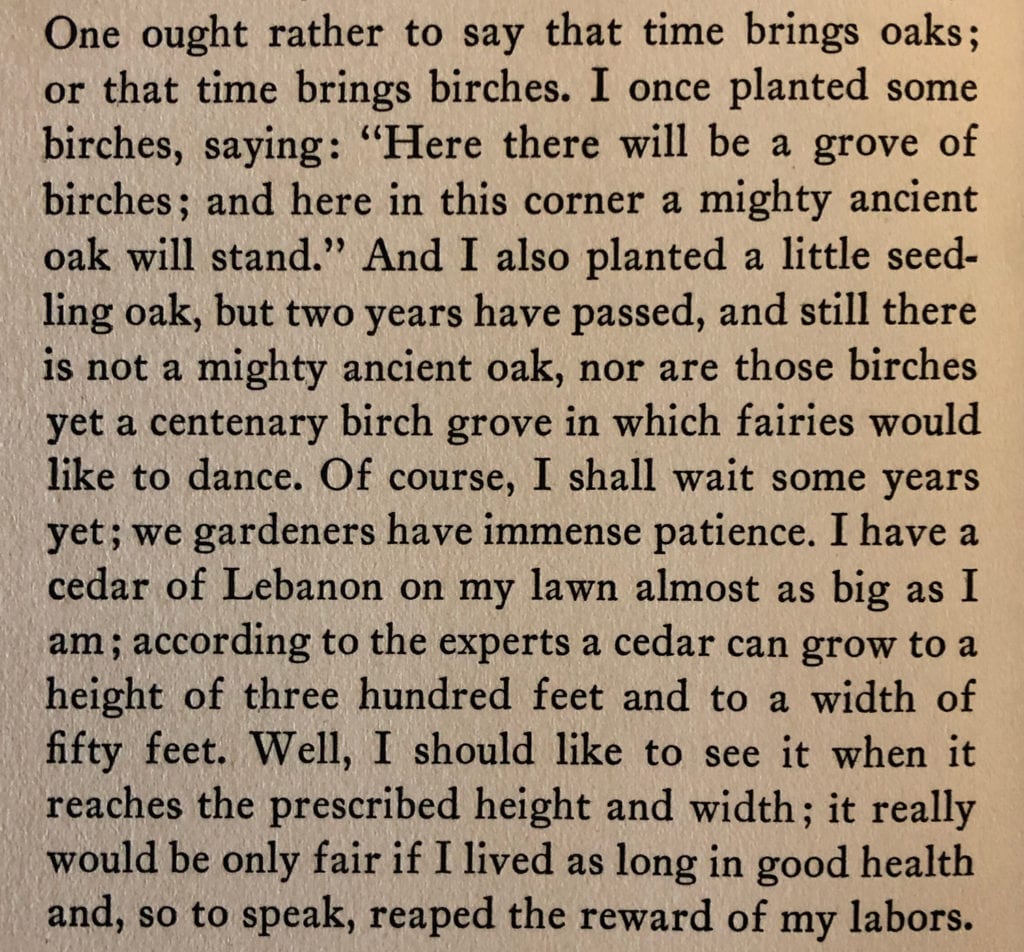
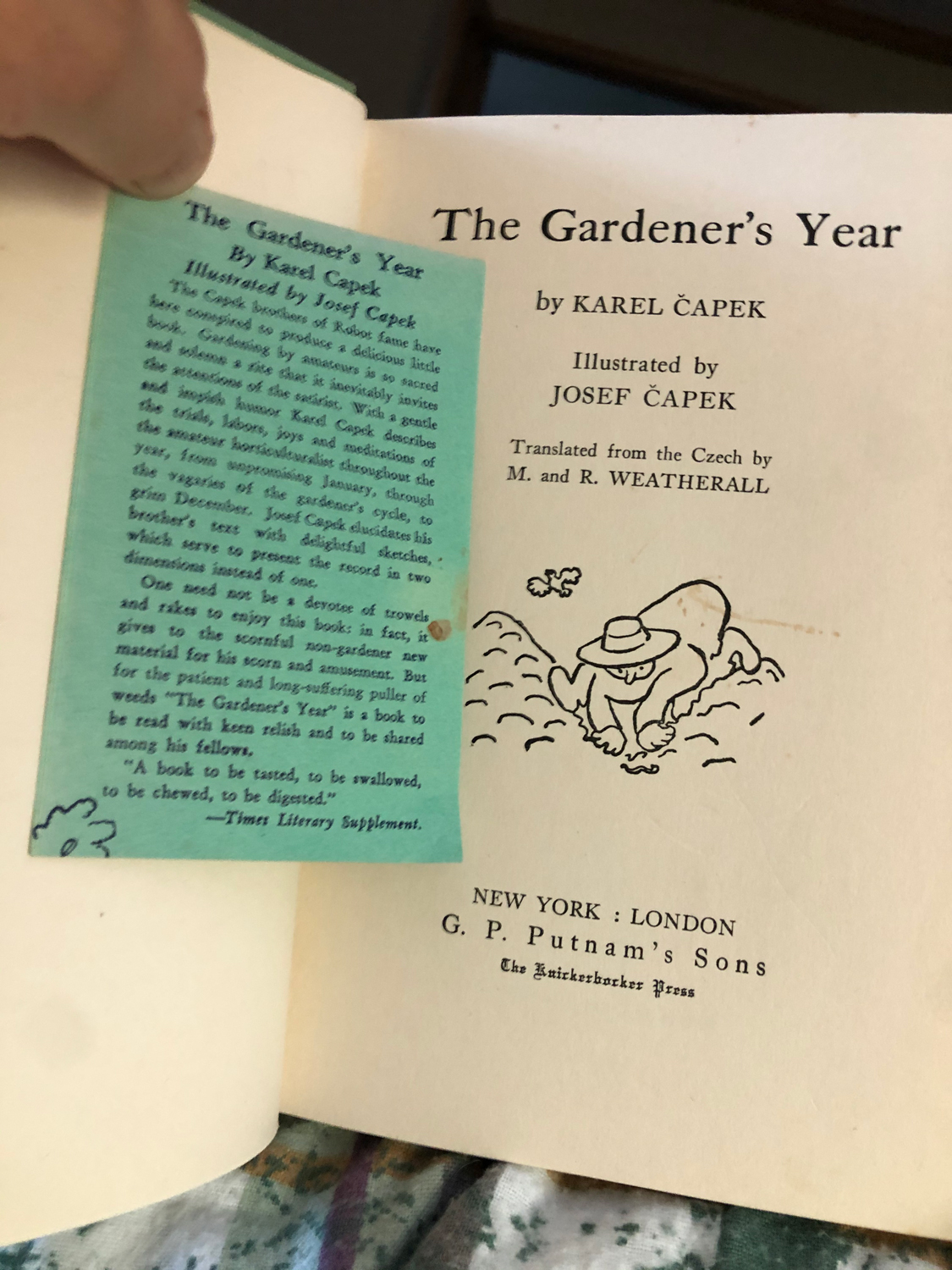
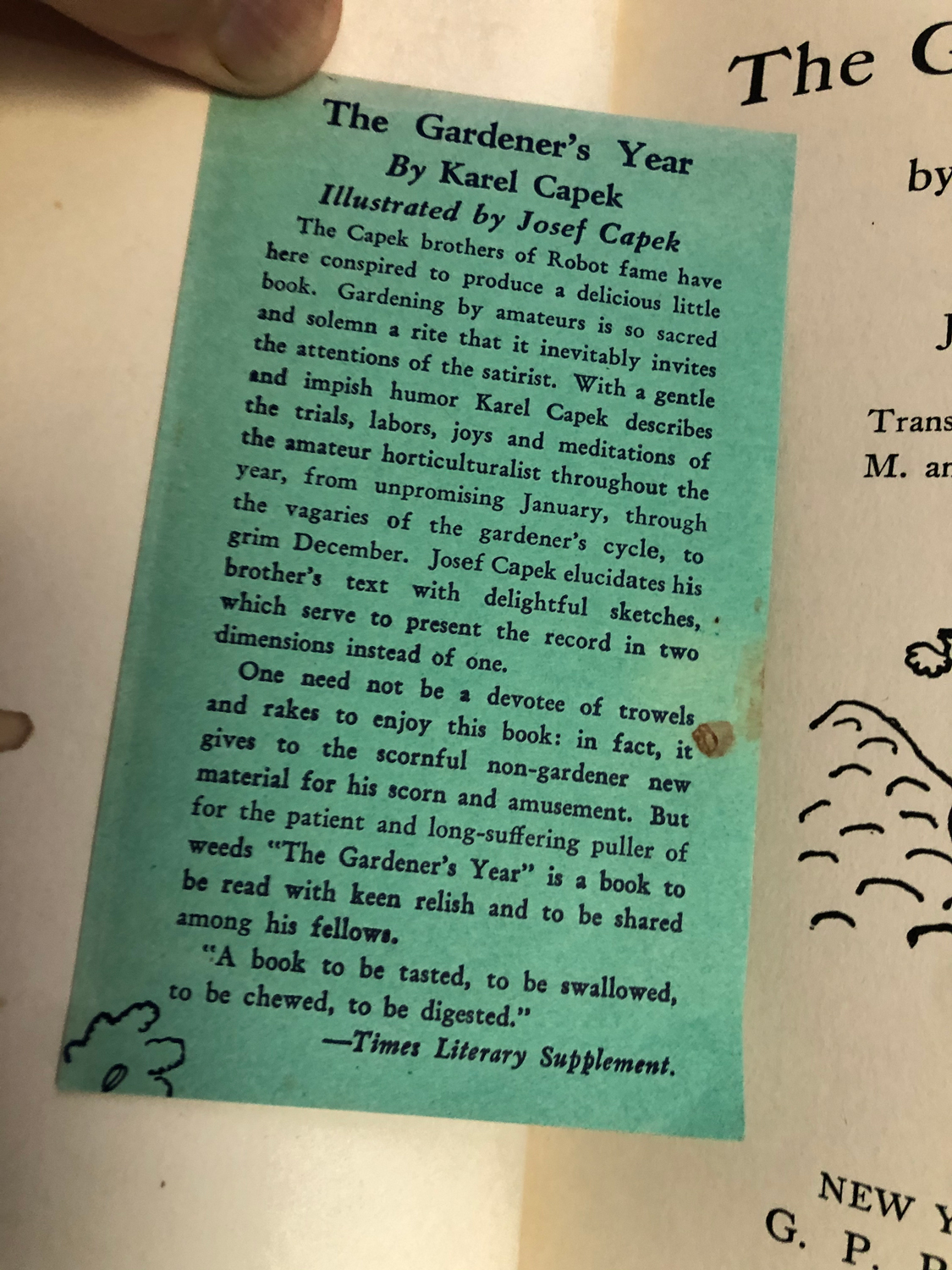
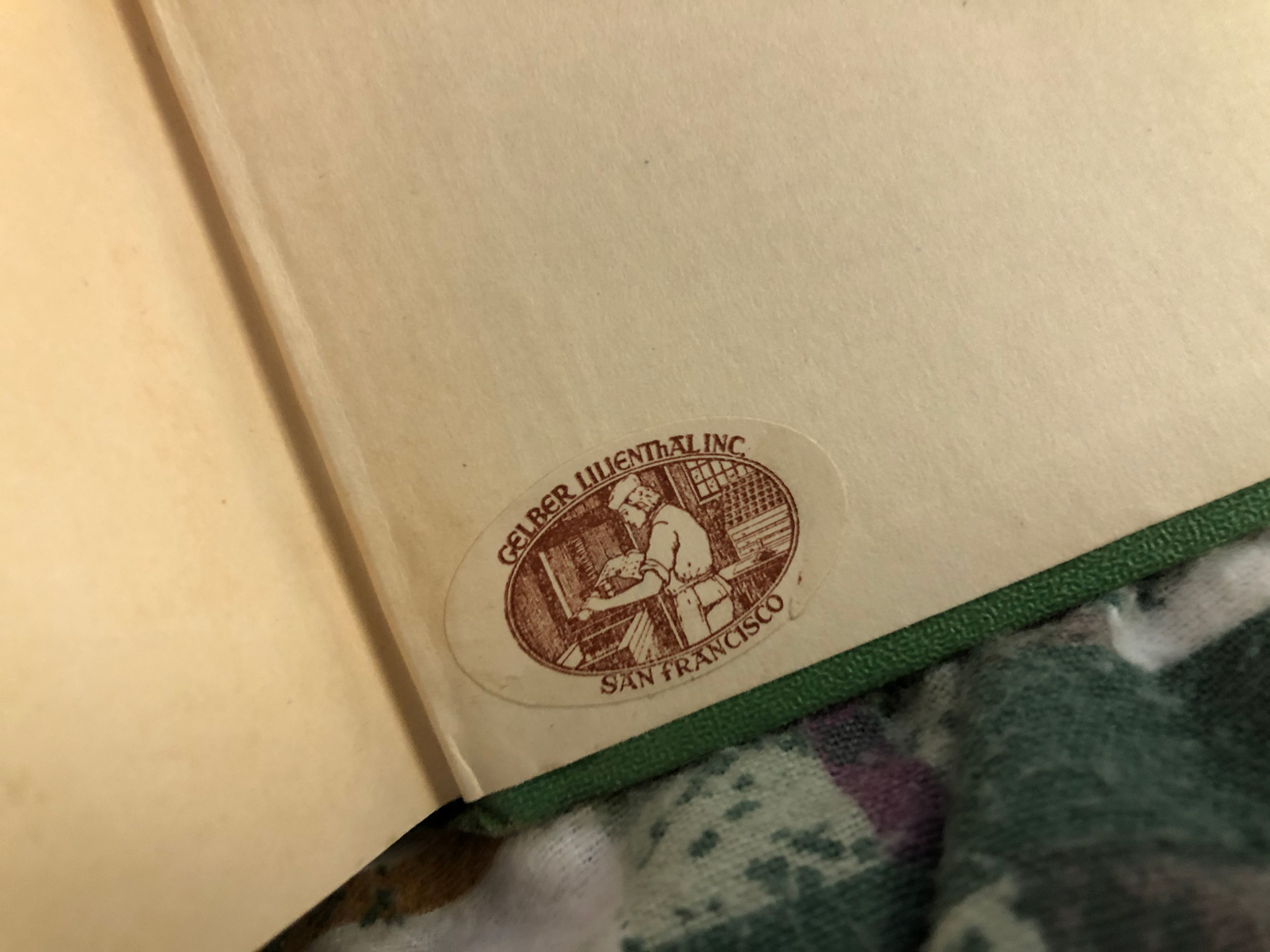
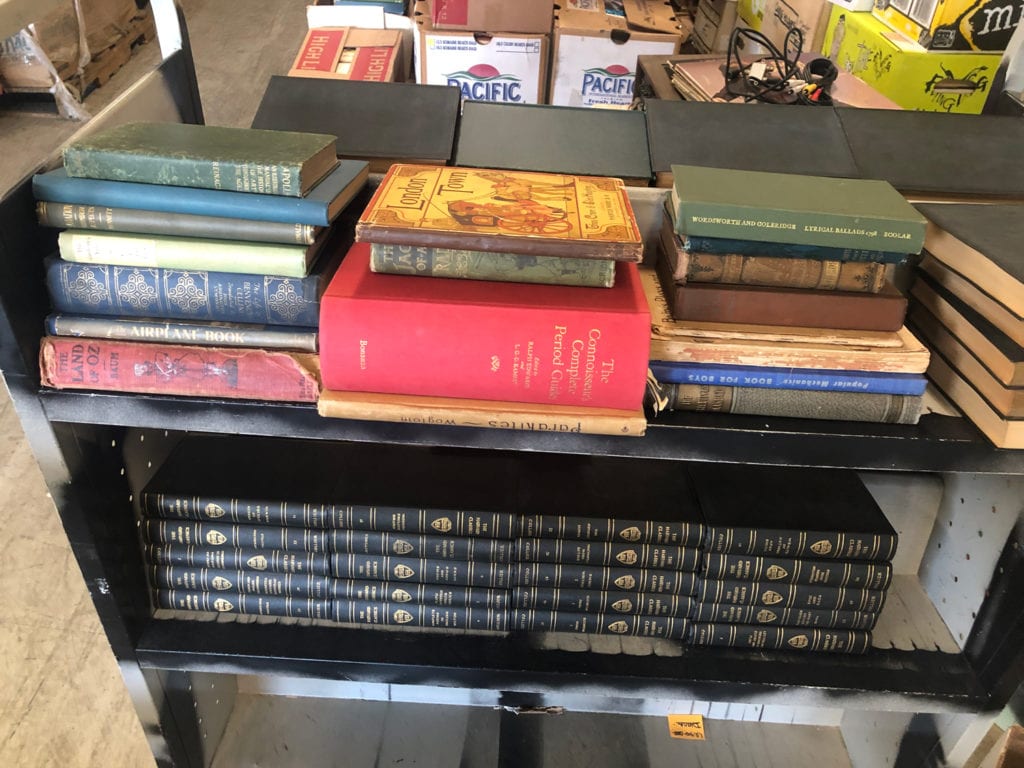
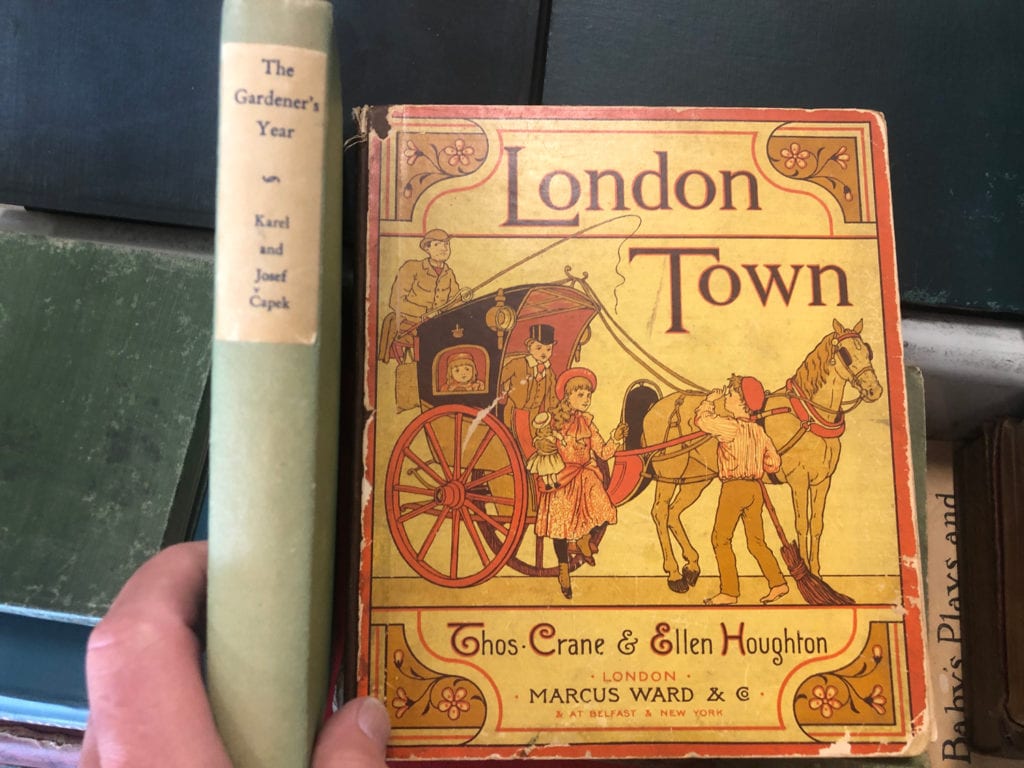
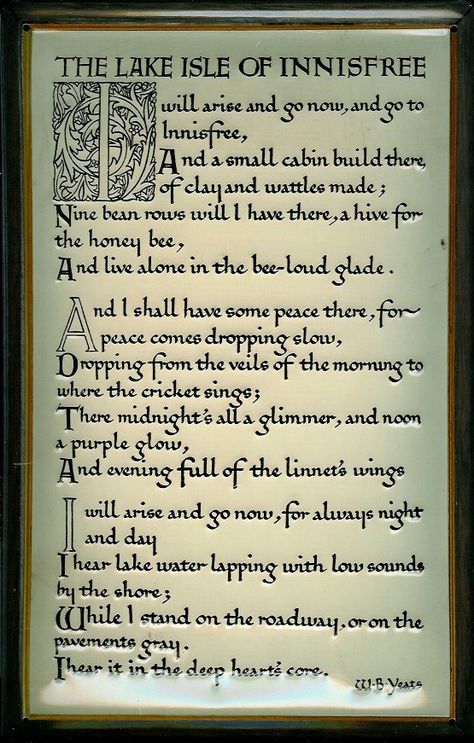
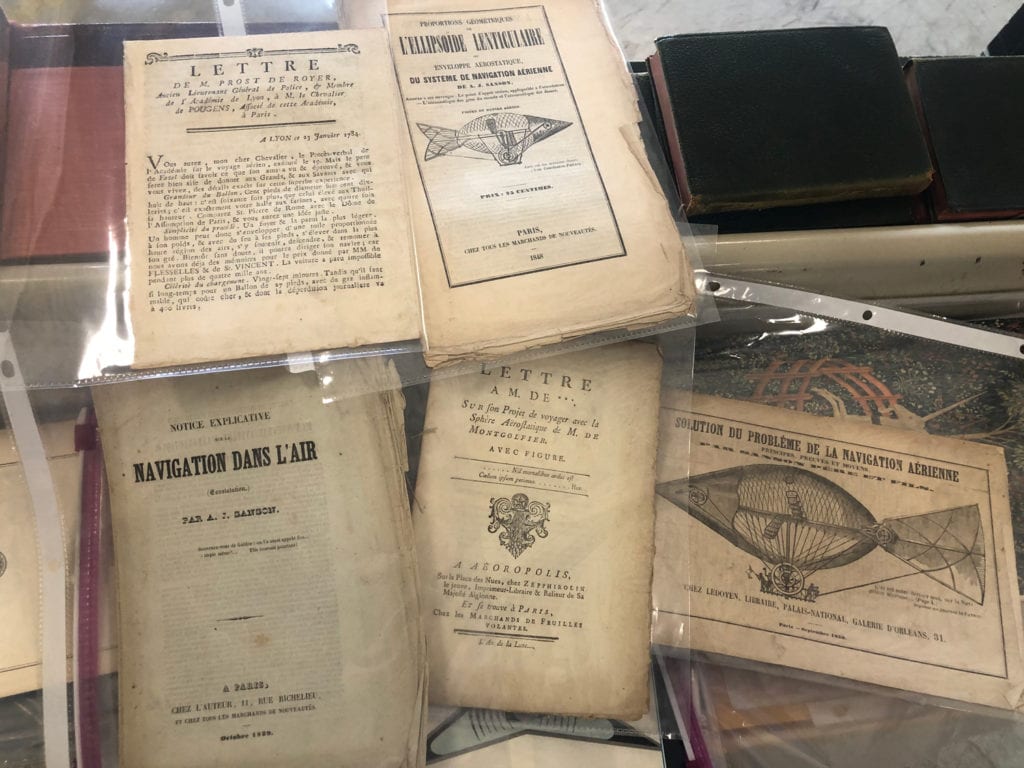
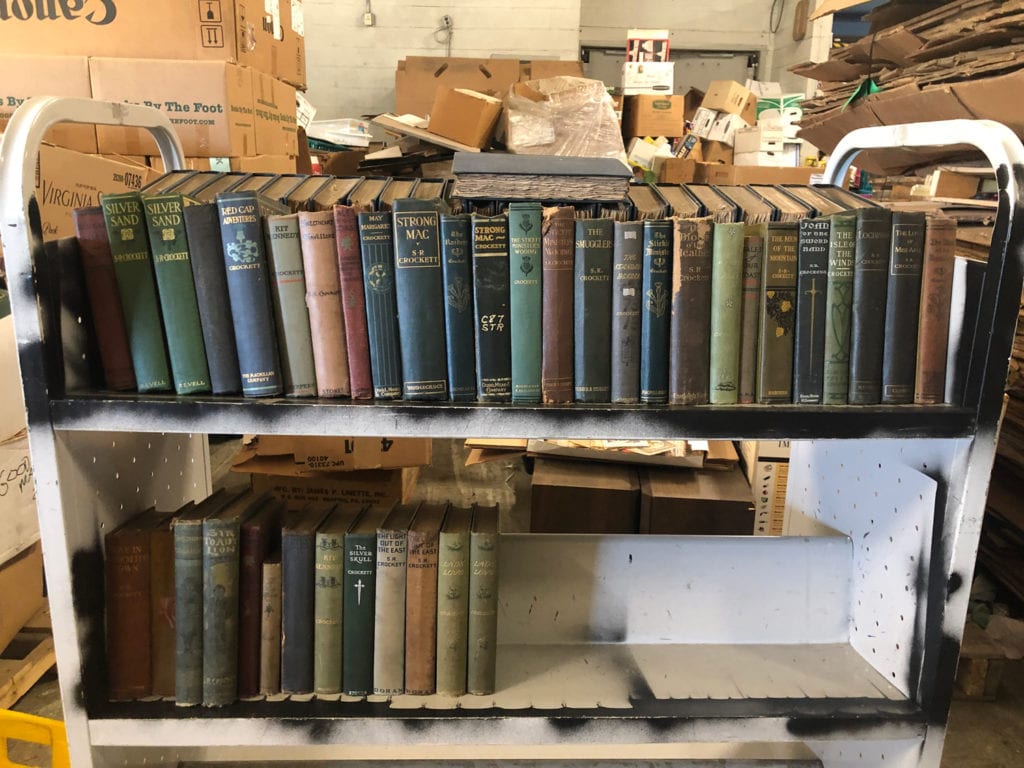
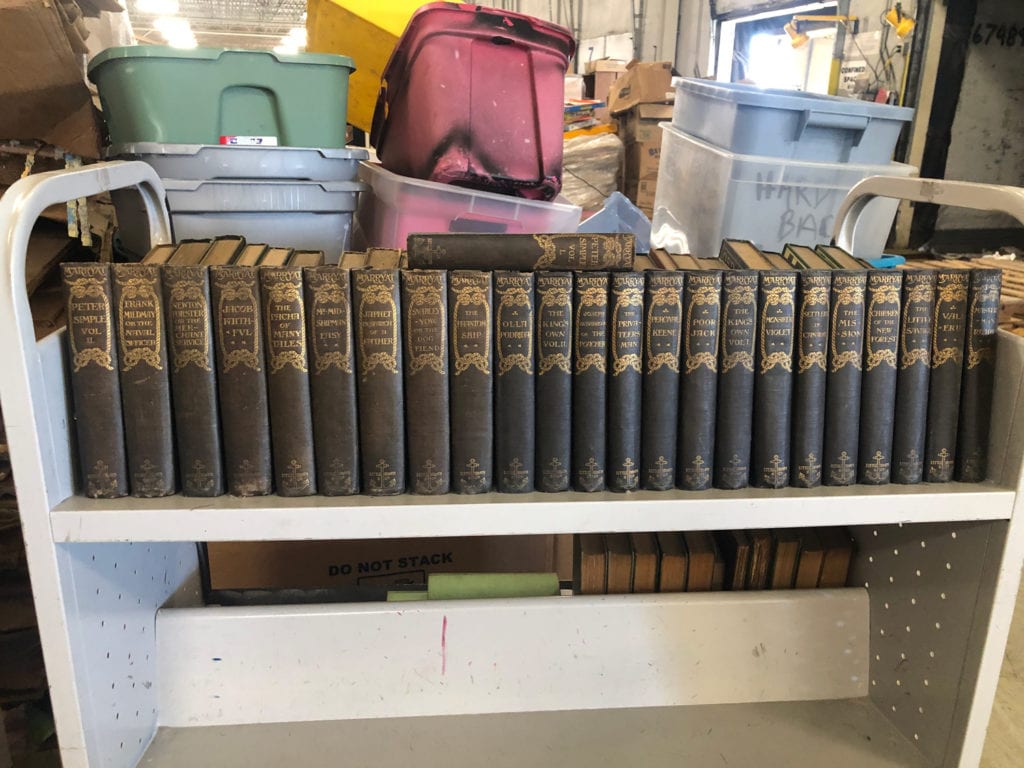
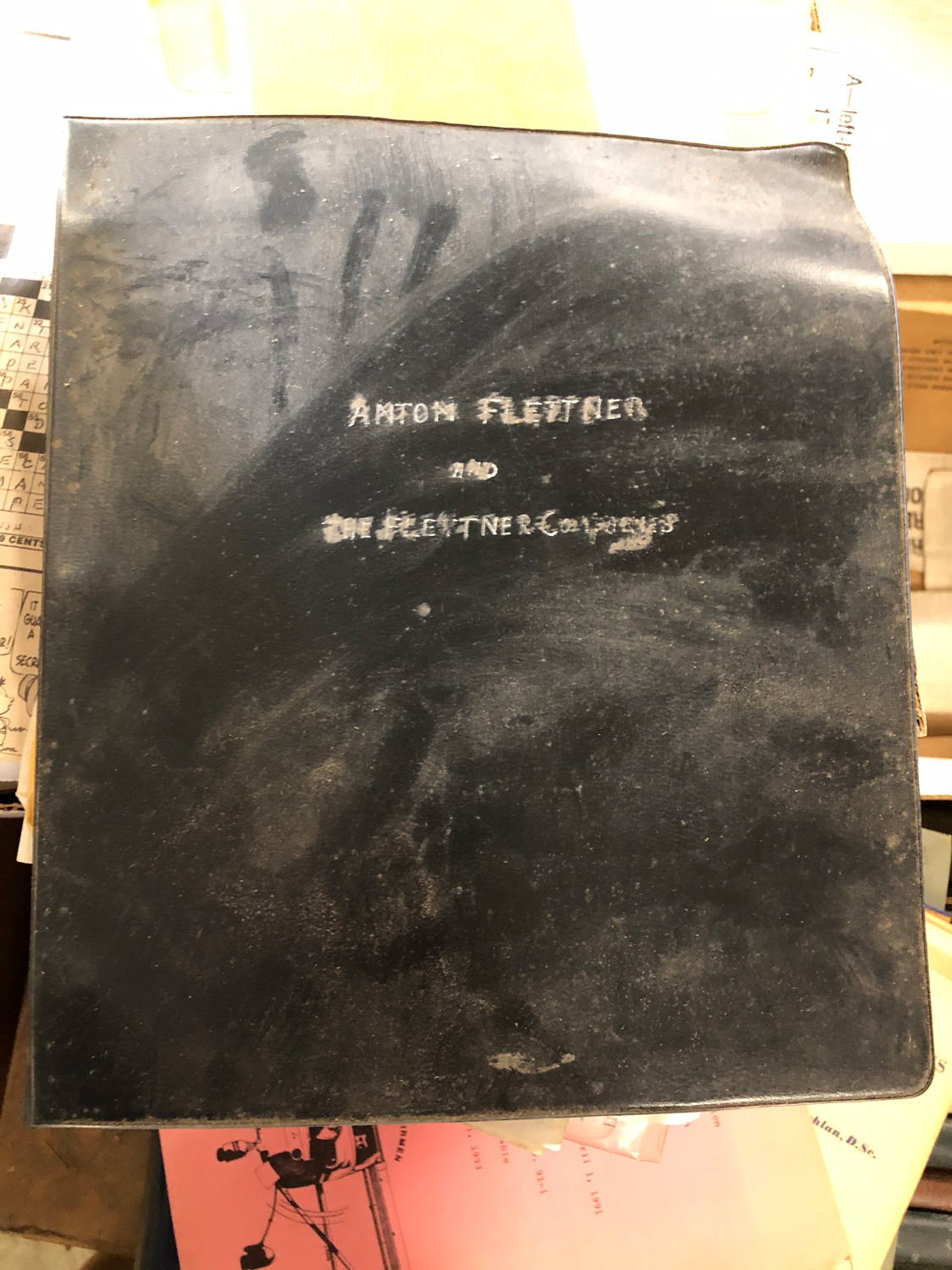
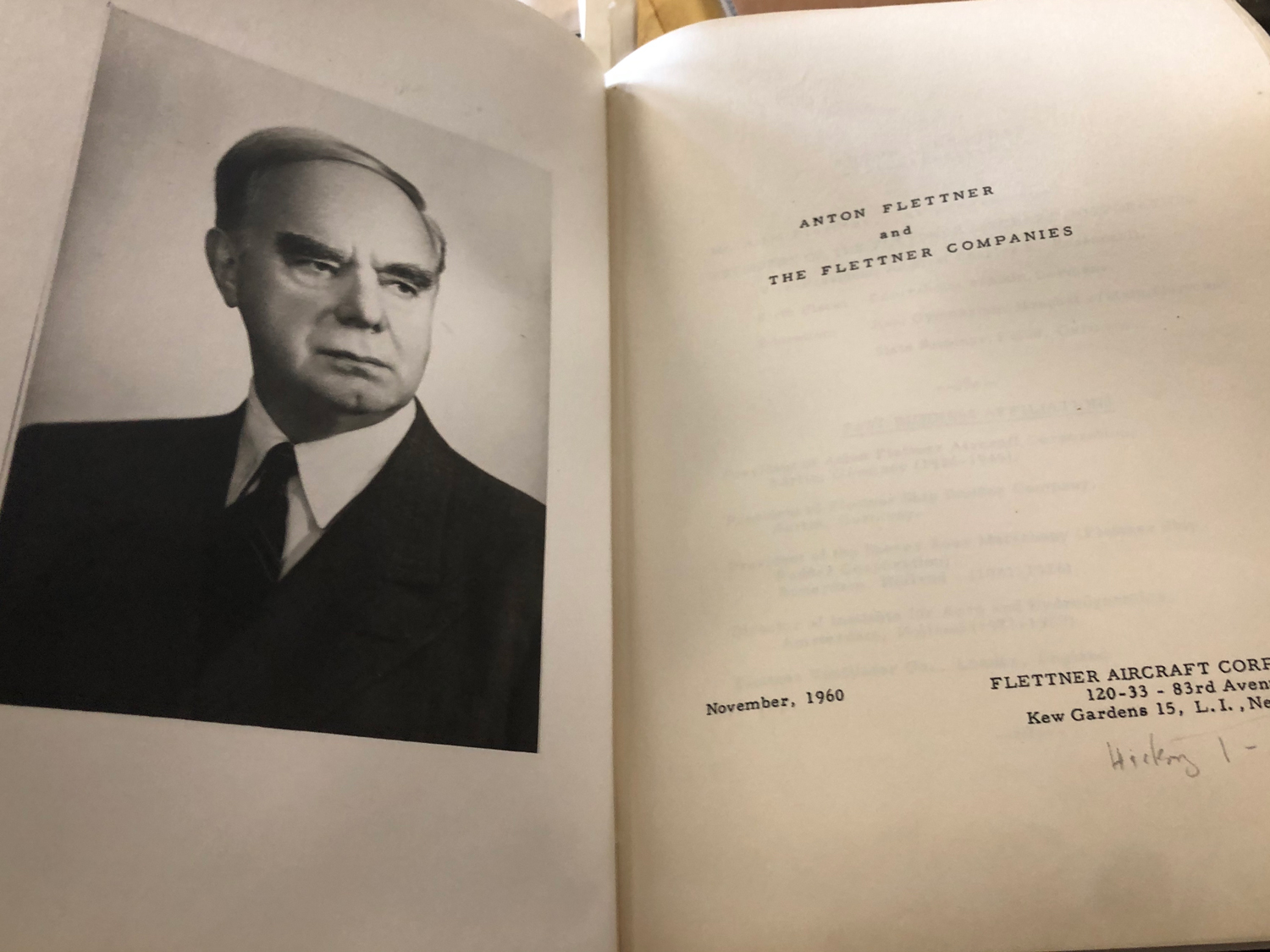

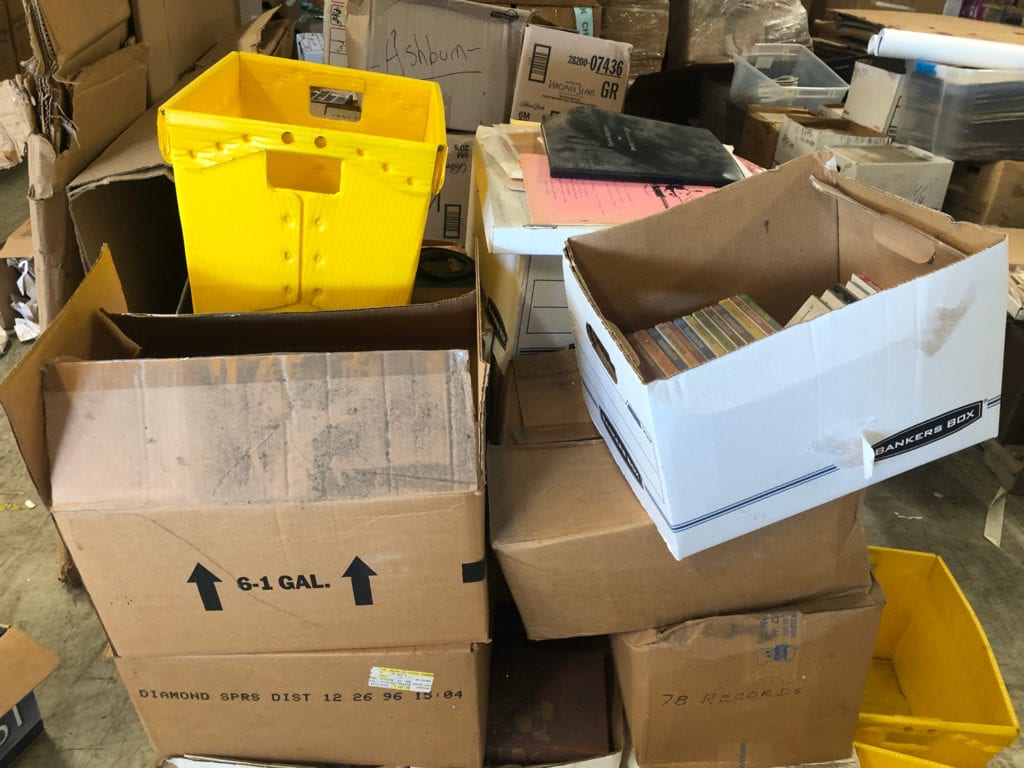
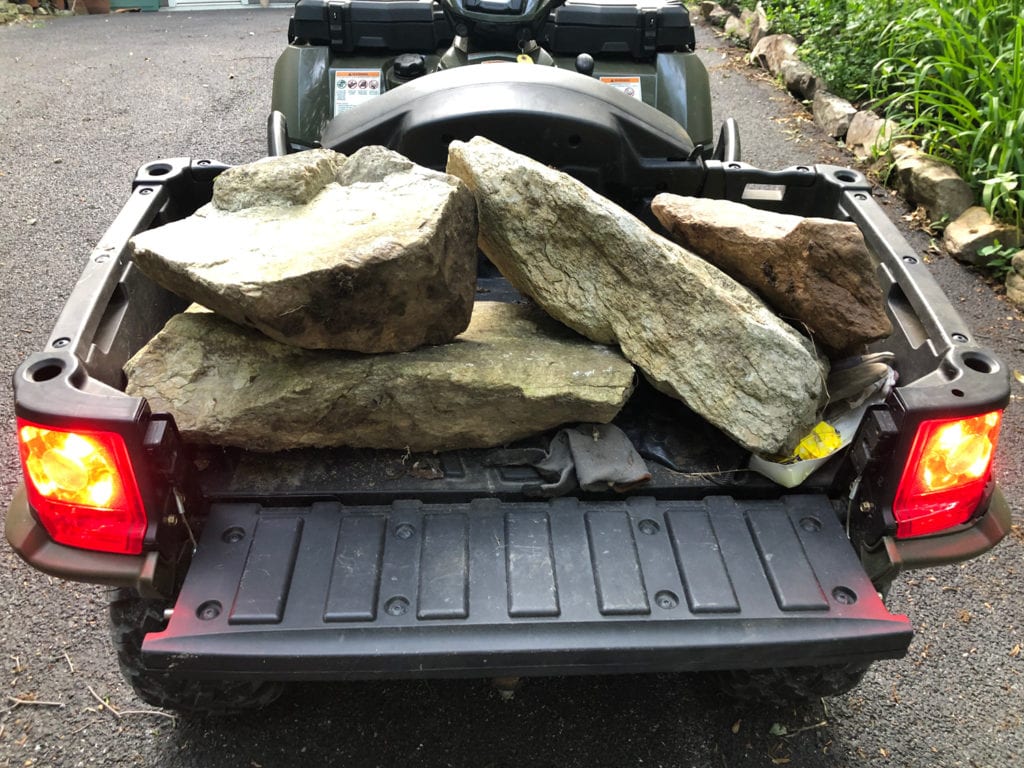
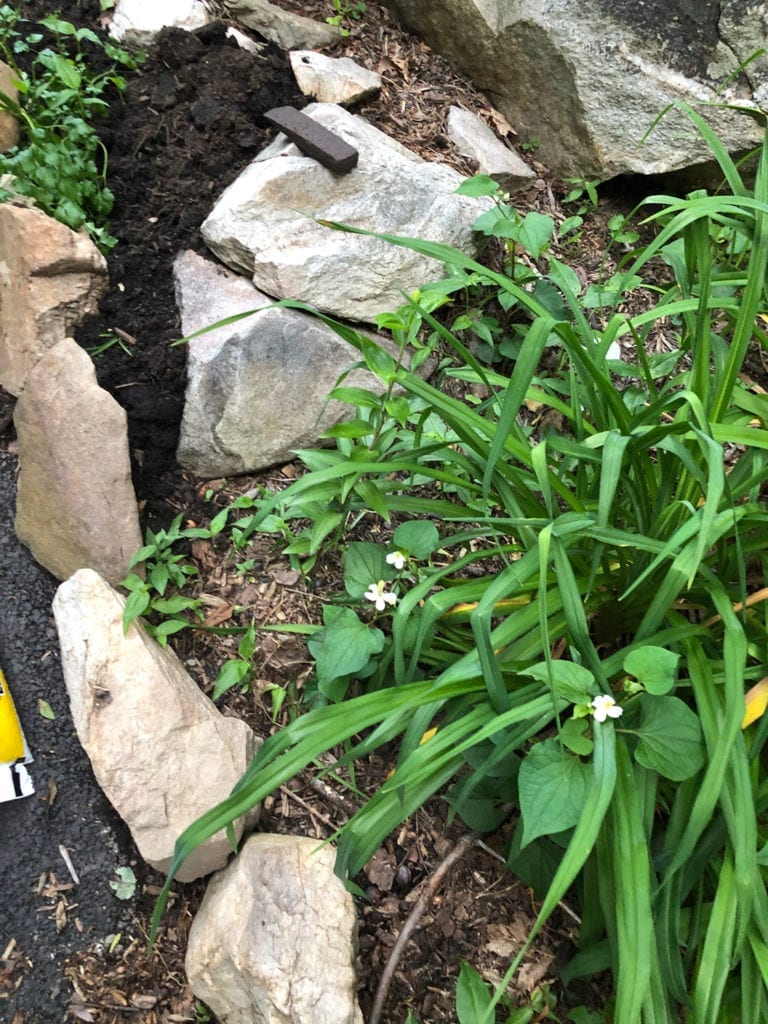
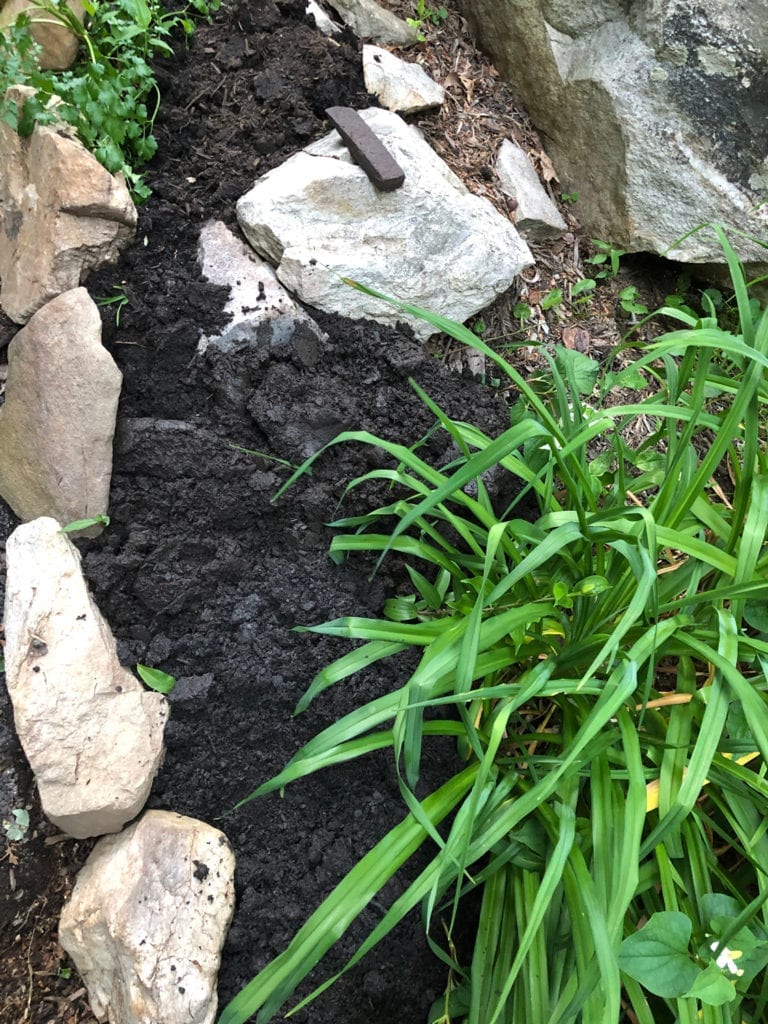
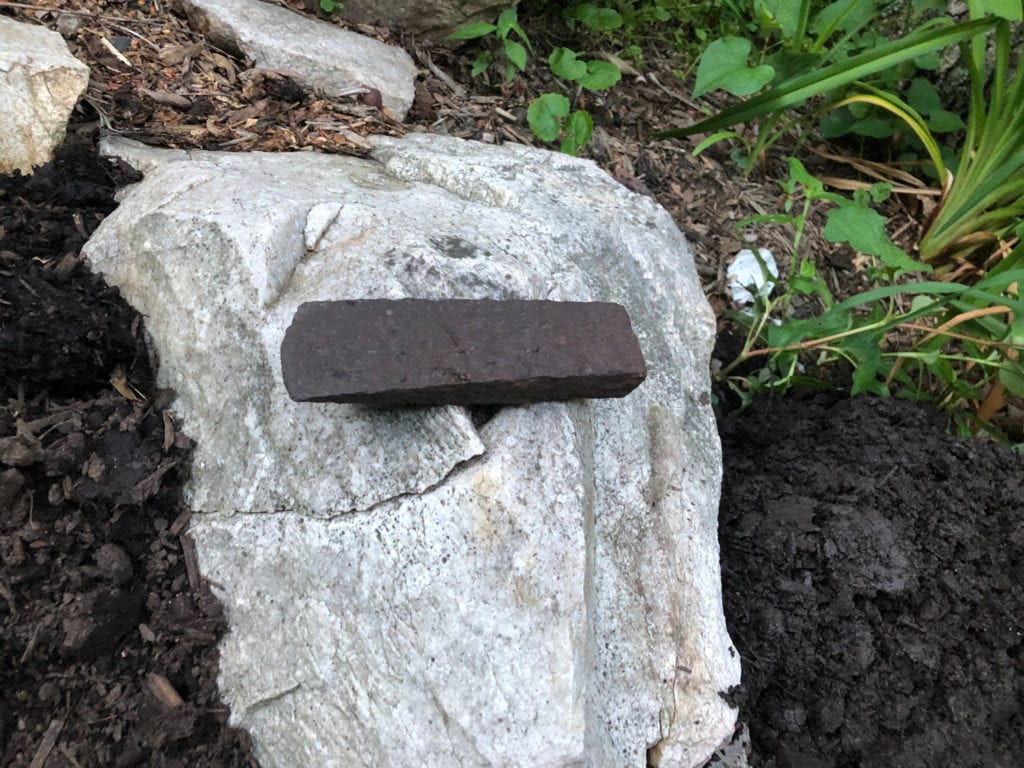
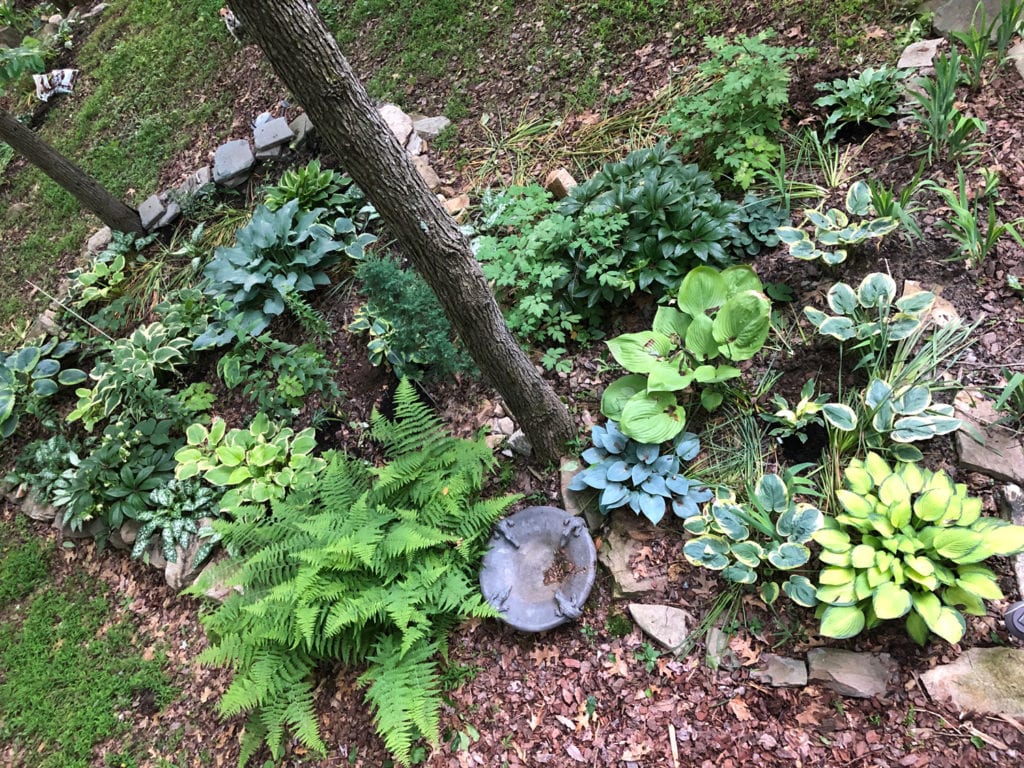
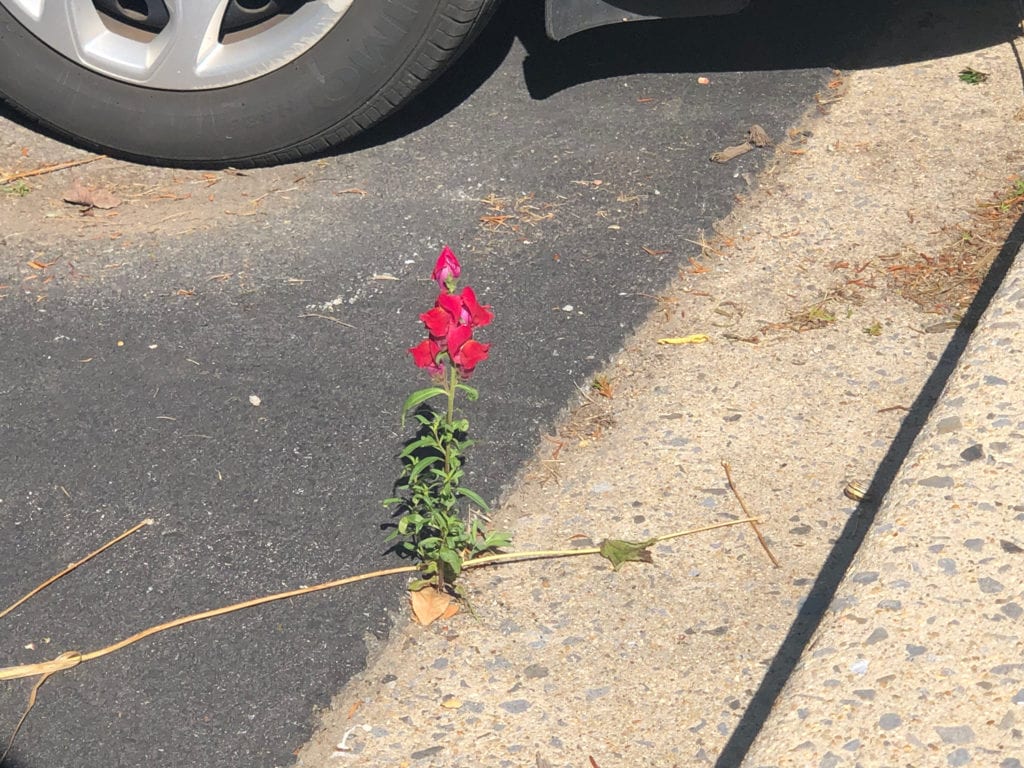
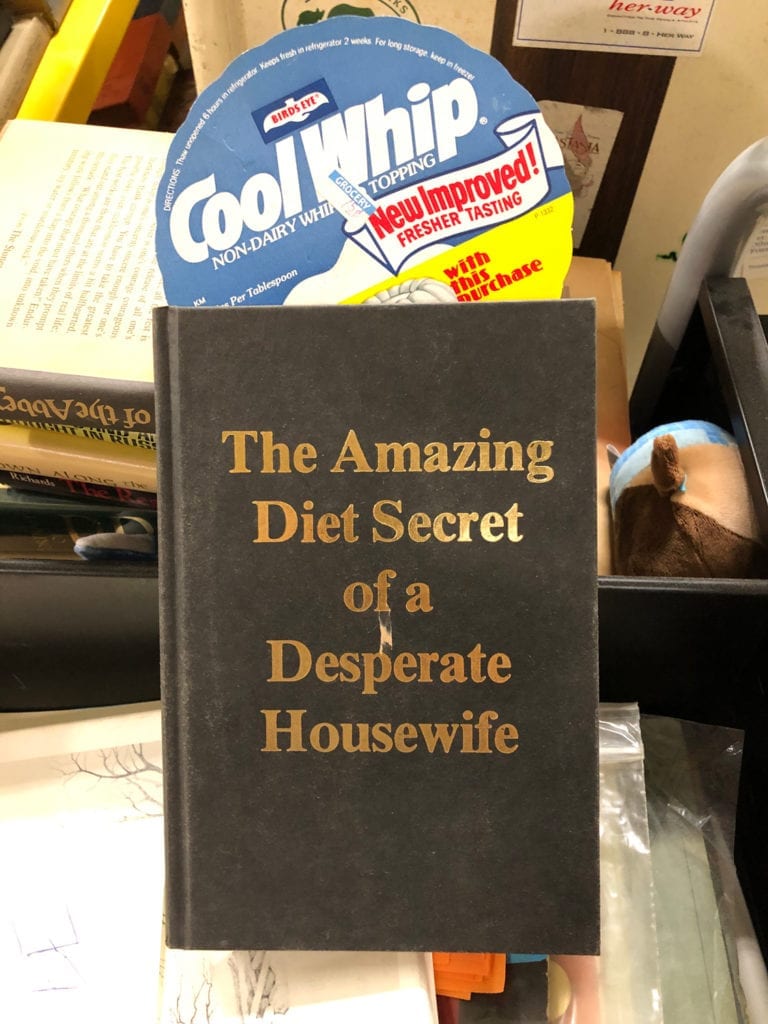
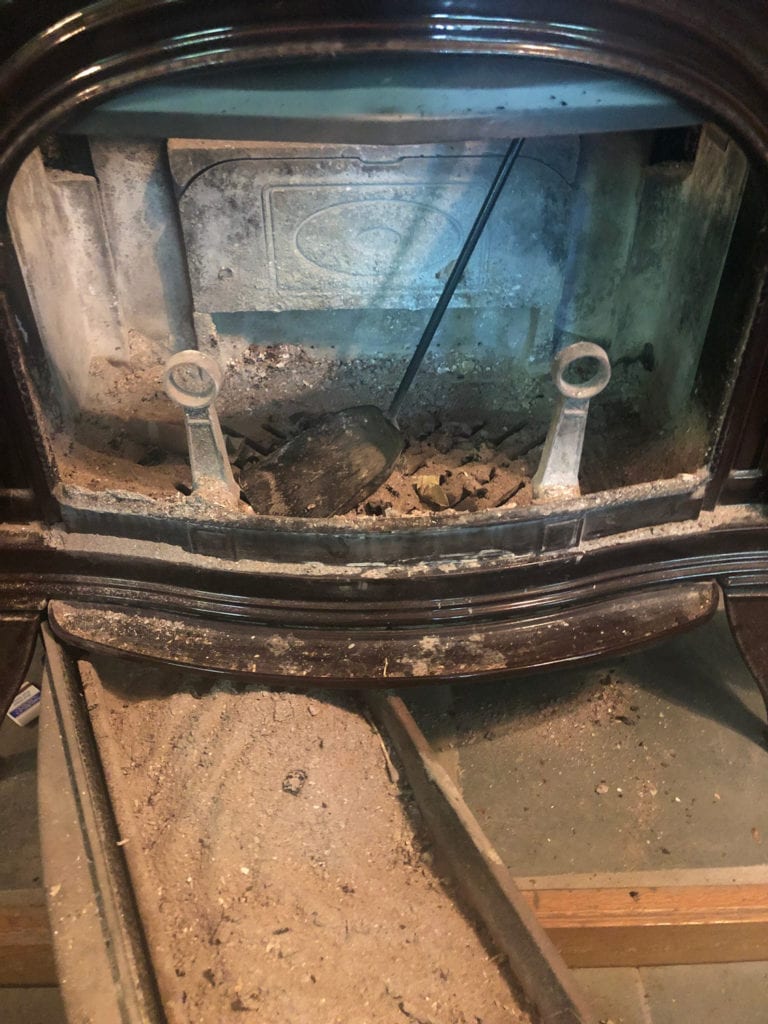
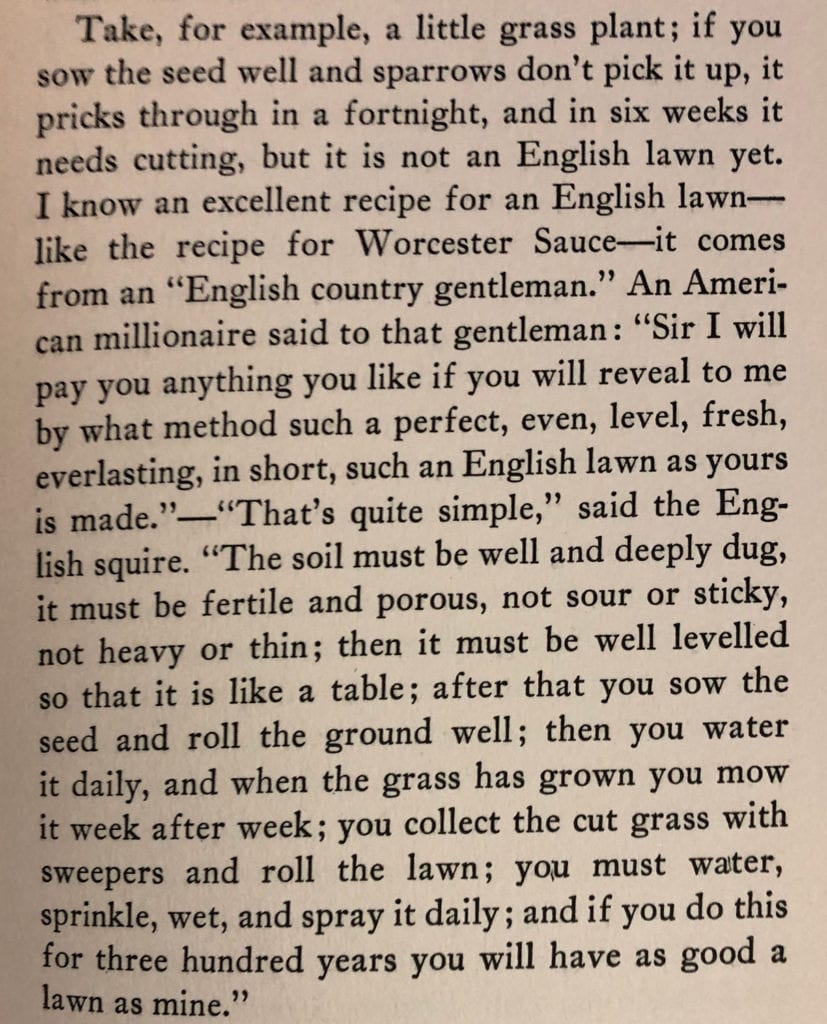
Chuck, You’ve inspired me to dig out my copy of “The Gardener’s Year,” which is with a stack of other Capek books. As it happens, too, just last year I bought a copy of S.R. Crockett’s “The Black Douglas,” a historical novel of chivalric romance, witchcraft and sorcery. As for Marryat: A few years back I acquired a half dozen volumes of Marryat from some place called Wonder Book and Video. Marryat is famous for his sea stories, but in “The Phantom Ship” he embeds “The White Wolf of the Hartz Mountains,” one of the greatest of all werewolf stories. So, you never know: There may be other Crockett and Marryat readers out there.–md
Mr. Dirda, Interesting how many of the readers of your column on “downsizing” (awful word) your library assumed you needed their advice on how to dispose of the unwanted volumes. “There are places that buy used books.” A metric to measure your success might be whether you buy more from Chuck than you sell him. 😆
“There are places that buy used books.”
Sage advice.
Those place are getting harder to find though.
I’m sure Michael knows every book nook in the region.
Well, perhaps I was planting seeds…
The world needs more Michael Dirdas.
The Phantom Ship sounds interesting.
I wonder if there will be more groups in the boxes on that pallet.
Thank for reading the story and especially taking time to write.
Best
Chuck
I recently read Masterman Ready, which is a Robinson-Crusoe story, and I was surprised at how awful it was. Yes, there are expected Victorian attitudes towards the lower class and “natives,” some of which are hard to take. But there is also an incredible Panglossian attitude that God has made everything best for all of us, which the title character constantly preaches to the other shipwrecked people. Horrible things that happen to other characters turn out to have a silver lining for the surviving characters, showing the infinite goodness of God (to those He didn’t blow up, drown, starve, etc.).
This did not make me that interested in following up the rest of the Marryat oeuvre, so I’m afraid you’ll have to find another buyer. Good luck!
P.S. What impressed me about the Yeats reading was how much it sounded link song, rather than just poetry.
Victorian Cautionary Tales
A tough slog I imagine.
There is a bit of lilt in Yeats’ reading once you get past near growl. A bit intense as well. Maybe the man on the “pavement” is the voice he is using – that man is none too happy there.
It is his poem and he could read it any way he wanted.
Thank you for reading and writing Gregory
Best
Chuck
I saw that lonely snapdragon last week! A sign of regrowth! It was a sign of good things to come. If it could make it out there and bloom, then Wonder Book is sure to make it! There are too many people who love it and are working to keep it going. I appreciate all you do for us employees, more than anyone knows. Thank you!
Thank you Terry.
Your words are so kind.
Wonder Book is very lucky to have so many here that care so much.
Chuck